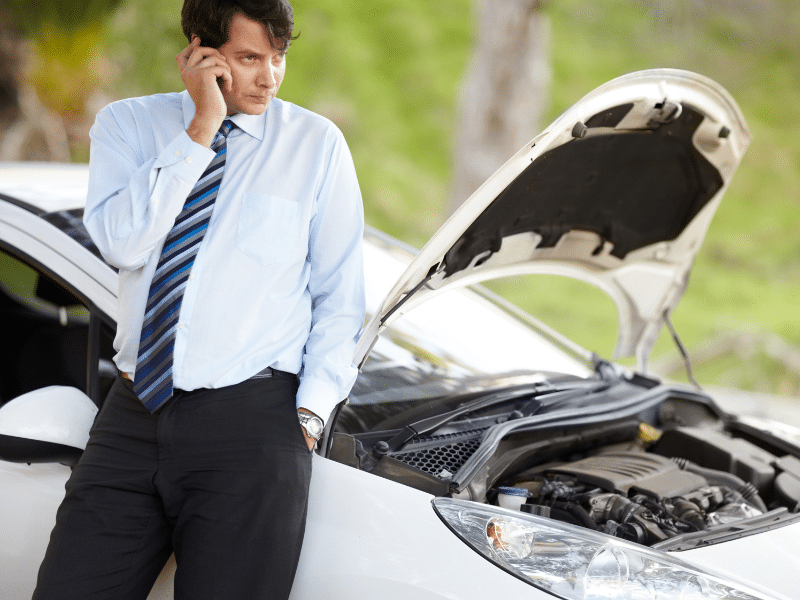There are few things as annoying as a car that won’t start when you have to rush to the office or drop the kids at school. If you find yourself in a situation like this and you wonder why your car won’t start, here are some common causes to consider. There can be almost a hundred different reasons, but we will limit ourselves to the most common ones:
1. Dead car battery
This is the most common reason why a car won’t start. Using a battery tester is the best way to check your battery and see if it is weak. If you don’t have a battery tester, try to jump-start your car using jumper cables and let it run for a few minutes. This will give the alternator some time to charge the battery.
2. Bad battery connection or battery corrosion
If you are unable to get the car to start even with a jump start, the culprit could be battery corrosion that is preventing the flow of electricity. Clean the battery posts thoroughly to ensure complete connection, and then try to start the car again. There are specific products available that can be used to clean the battery effectively. Another reason could be that the cable connections on the batteries are loose or ripped. Turn off the car and try to twist and turn the connections and see if they move. If they do, it means the battery terminals are loose and need to be tightened.
3. Bad Alternator
The alternator is a generator whose purpose is to distribute electricity to the car and recharge the battery. If your battery is fine, but the car won’t start, it could be because of a bad alternator. If you have a bad alternator, the check engine light or battery symbol may turn on, and other electrical components, such as the interior lights, may start bright but go dim in some time. In case you suspect a bad alternator, you should have it replaced as soon as possible to prevent damage to the battery.
4. Ignition switch problem
The ignition switch carries battery power to the electrical components, including the starter motor. If the ignition switch is faulty, the starter motor will not receive power and will not fire the engine when the ignition switch is turned on. There will be no clicking sound when you start the car, but the horn and lights may still work. This has to be fixed by a professional.
5. Bad starter motor
If you turn the key and hear a click, but the engine won’t start, it could be due to a problem with the car’s electrical system. The starter motor is a device that cranks the engine to initiate the engine’s operation under its own power. If a bad starter motor is a culprit, you will need a new one installed.
6. Faulty fuse
Another reason your car won’t start is due to a faulty fuse. Your car’s fuses protect electrical wiring against overcurrent and short-circuiting. These fuses disconnect the circuit when they detect a potentially dangerous level of current. If the fuses are faulty, the car won’t start. A blown or damaged fuse will prevent power from reaching the starter relay, and hence, the vehicle won’t start. Check the fuse box and see if there is a blown fuse or wire damage. Have it repaired immediately.
7. Clogged fuel filter
Your car’s fuel filter prevents debris from entering the fuel system. A clogged fuel filter can prevent enough fuel from reaching the engine, and the vehicle won’t start. If this is the problem, you will need a new fuel filter.
If your car has run into a problem, get in touch with our trustworthy team to diagnose and repair the issue.


